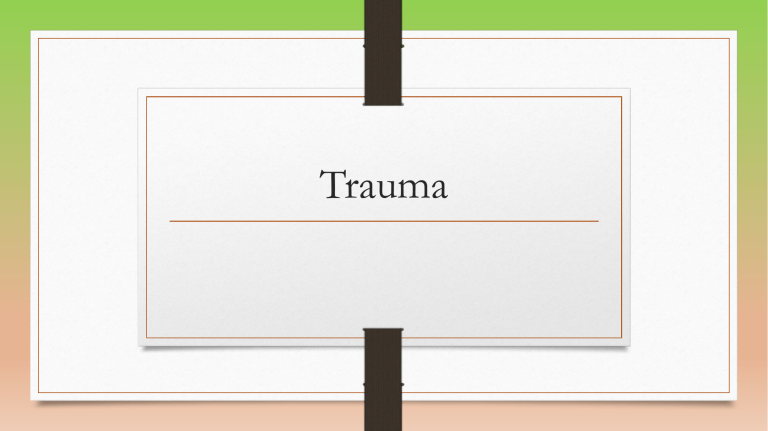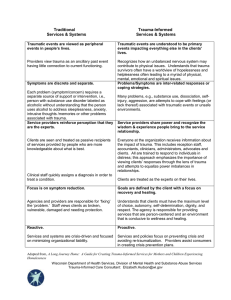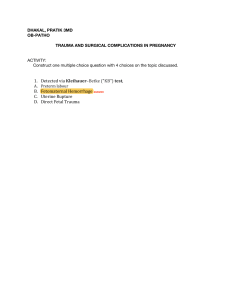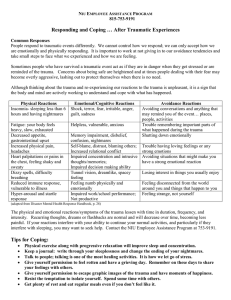
Trauma A Deeply Distressing Or Disturbing Experience. What is emotional & psychological trauma Emotional and psychological trauma is the result of extraordinarily stressful events that shatter your sense of security, making you feel helpless in a dangerous world. Traumatic experiences often involve a threat to life or safety, but any situation that leaves you feeling overwhelmed and isolated can be traumatic, even if it doesn’t involve physical harm. It’s not the objective facts that determine whether an event is traumatic, but your subjective emotional experience of the event. The more frightened and helpless you feel, the more likely you are to be traumatized. What are the symptoms of emotional trauma? There are common effects or conditions that may occur following a traumatic event. Sometimes these responses can be delayed, for months or even years after the event. Often, people do not even initially associate their symptoms with the precipitating trauma. The following are symptoms that may result from a more commonplace, unresolved trauma, especially if there were earlier, overwhelming life experiences: Physical • Eating disturbances (more or less than usual) • Sleep disturbances (more or less than usual) • Sexual dysfunction • Low energy • Chronic, unexplained pain Emotional • Depression, spontaneous crying, despair and hopelessness • Anxiety • Panic attacks • Fearfulness • Compulsive and obsessive behaviors • Feeling out of control • Irritability, angry and resentment • Emotional numbness • Withdrawal from normal routine and relationships Cognitive • Memory lapses, especially about the trauma • Difficulty making decisions • Decreased ability to concentrate • Feeling distracted • ADHD symptoms • The following additional symptoms of emotional trauma are commonly associated with a severe precipitating event, such as a natural disaster, exposure to war, rape, assault, violent crime, major car or airplane crashes, or child abuse. Extreme symptoms can also occur as a delayed reaction to the traumatic event. Re-experiencing the Trauma • intrusive thoughts • flashbacks or nightmares • sudden floods of emotions or images related to the traumatic event Emotional Numbing and Avoidance • amnesia • avoidance of situations that resemble the initial event • detachment • depression • guilt feelings • grief reactions • an altered sense of time Increased Arousal • hyper-vigilance, jumpiness, an extreme sense of being "on guard" • overreactions, including sudden unprovoked anger • general anxiety • insomnia • obsessions with death What are the possible effects of emotional trauma? Even when unrecognized, emotional trauma can create lasting difficulties in an individual's life. One way to determine whether an emotional or psychological trauma has occurred, perhaps even early in life before language or conscious awareness were in place, is to look at the kinds of recurring problems one might be experiencing. These can serve as clues to an earlier situation that caused a dysregulation in the structure or function of the brain. Common personal and behavioral effects of emotional trauma: • substance abuse • compulsive behavior patterns • self-destructive and impulsive behavior • uncontrollable reactive thoughts • inability to make healthy professional or lifestyle choices • dissociative symptoms ("splitting off" parts of the self) • feelings of ineffectiveness, shame, despair, hopelessness • feeling permanently damaged • a loss of previously sustained beliefs Common effects of emotional trauma on interpersonal relationships: • Inability to maintain close relationships or choose appropriate friends and mates • Sexual problems • Hostility • Arguments with family members, employers or co-workers • Social withdrawal • Feeling constantly threatened





